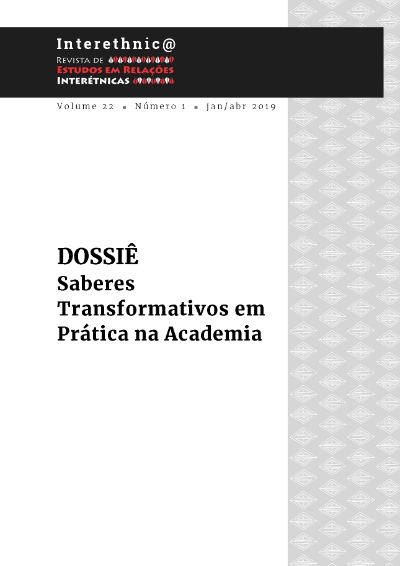Traditional peoples and communities in Conservation Units
Socio-environmental conflicts and fight for identity and territory
DOI:
https://doi.org/10.26512/interethnica.v22i1.17157Keywords:
Socio-environmental Conflicts, Conservation Units, Traditional People, PomeraniansAbstract
This article discusses the territorial and socioenvironmental conflicts resulting from the creation of Conservation Units in lands traditionally occupied by traditional peoples and communities. From the conflict surrounding the creation of the Pontões Capixabas National Park, which overlaps with the territory of a Pomeranian community in the municipality of Pancas, state of Espírito Santo, the study analyzes the process of mobilization and organization of the population in defense of their territory and, in an associated way, the process of revival and identity affirmation through the appropriation of the notion of Traditional Peoples and Communities. In a broad sense, the analysis also provides elements for understanding the paradoxical relationships between rights, knowledge and ways of life of traditional peoples and communities and the environmental conservation policies in progress in the country.
Downloads
Downloads
Published
How to Cite
Issue
Section
License
COPYRIGHT AND EXCLUSIVITY
At the time of submission, authors undertake not to send this manuscript to another journal during the reviewing process. Conversely, the Journal does not accept articles that are still under review in other journals. Neither will it accept two simultaneous reviews of the same author, understanding that this constitutes simultaneity.
Submission automatically implies full assignment of the copyright, including translation, if the article is approved for publication. Authors may reproduce their articles, provided that the original source (Interethnic Journal) is cited
GOOD SCIENTIFIC PRACTICES
TAll submitted articles will be submitted to plagiarism and "self-plagiarism" or republishing (publication as unpublished material of texts already published). Eventual cases of bad practice will be examined and decided by the editorial committee according to the guidelines of the National Council for Scientific and Technological Development (CNPQ).
The integrity of the content of the articles is the sole responsibility of the authors.



